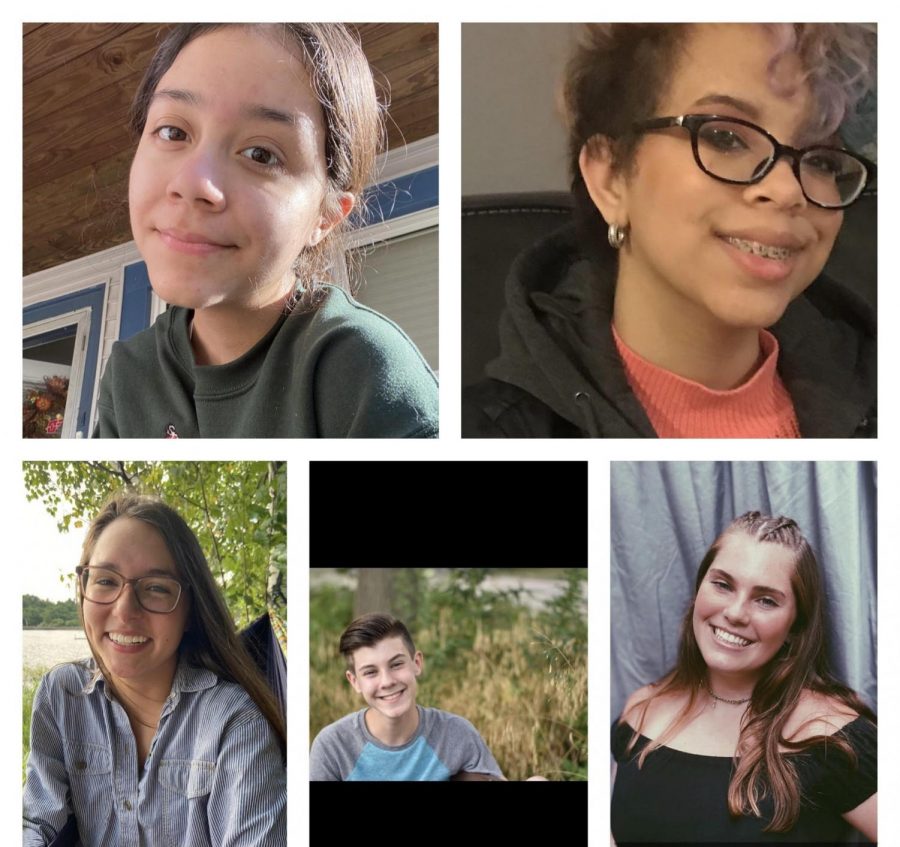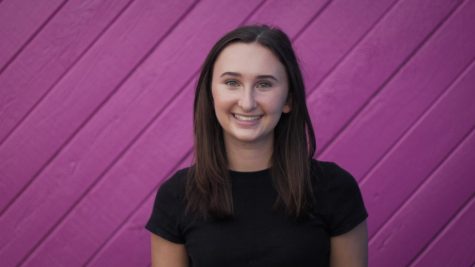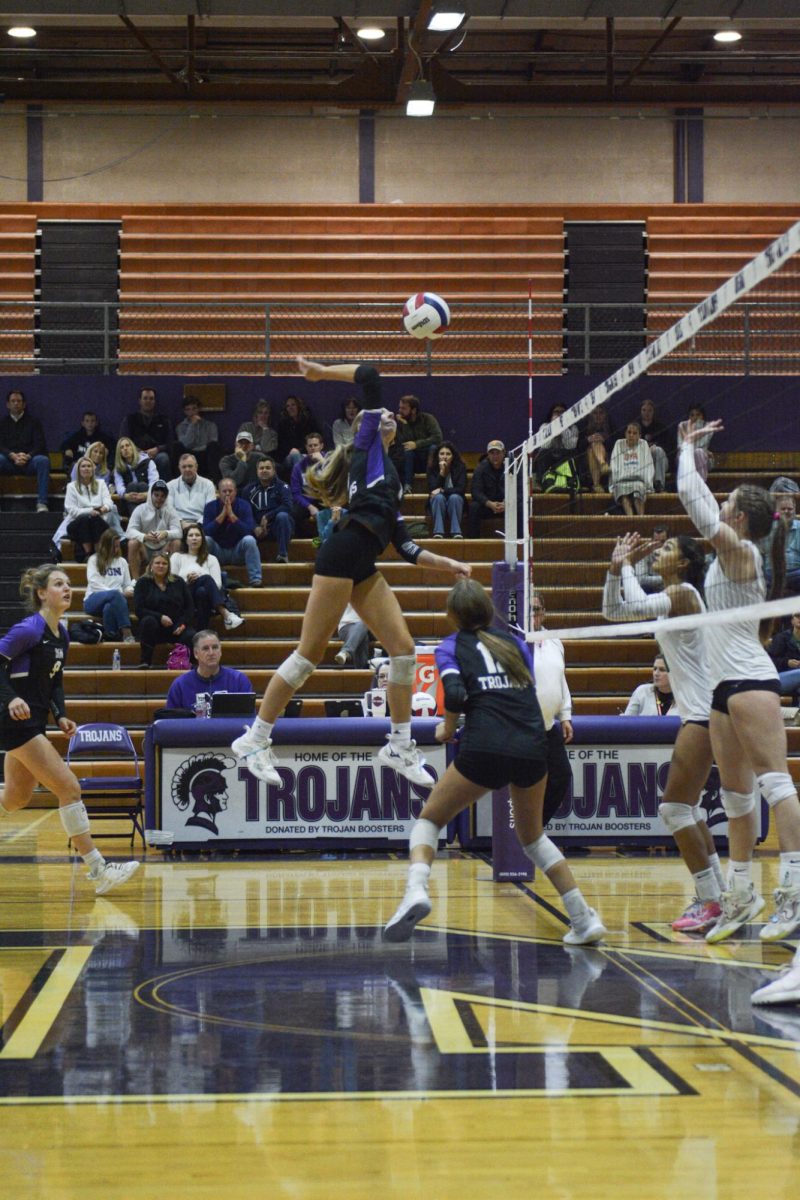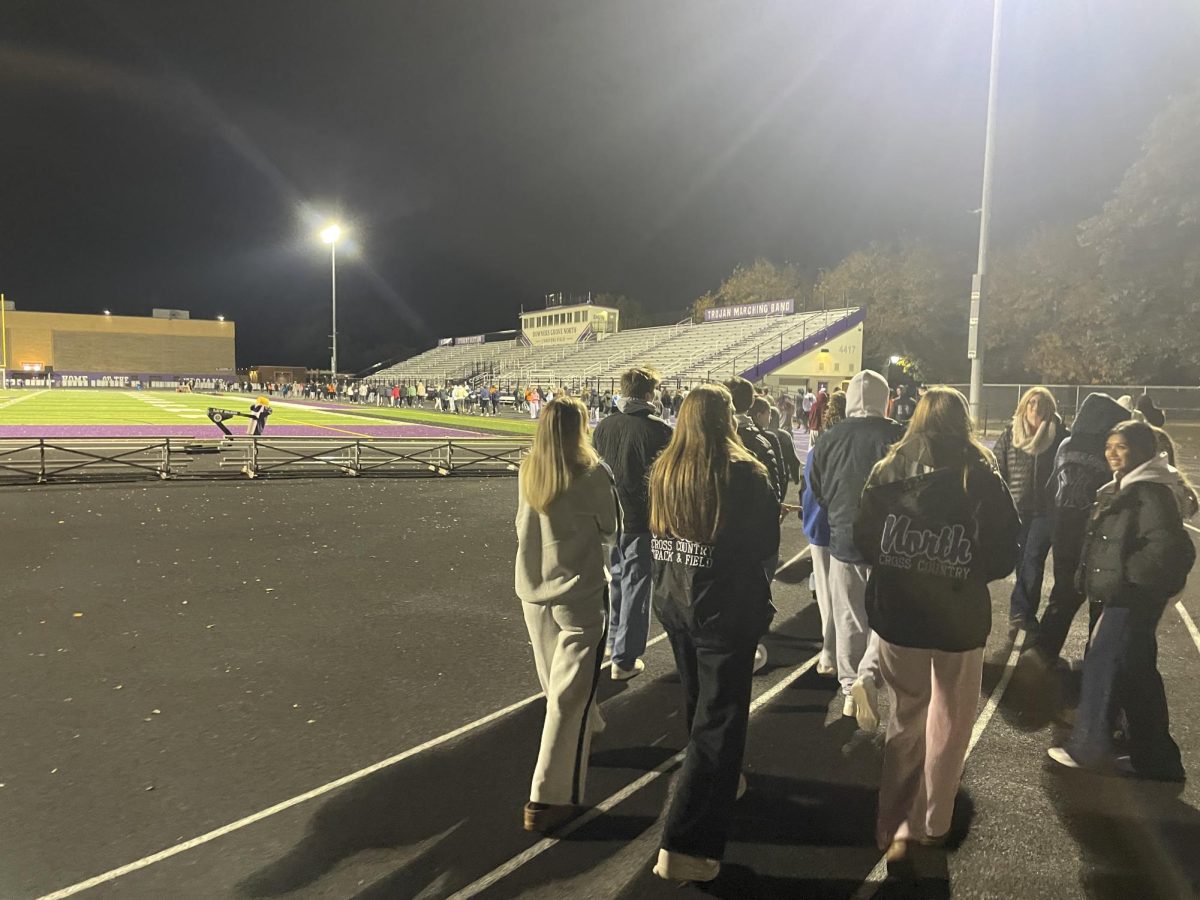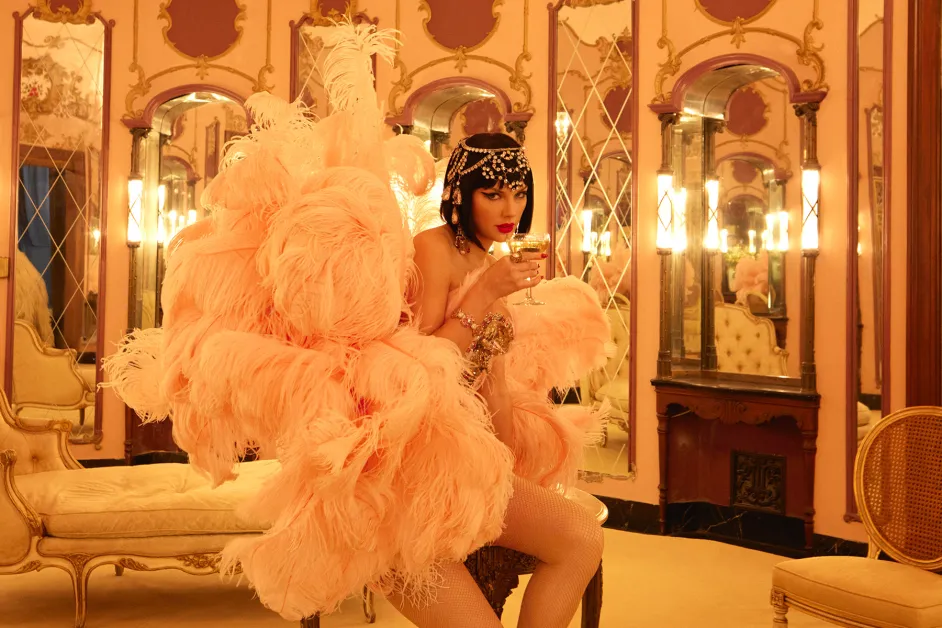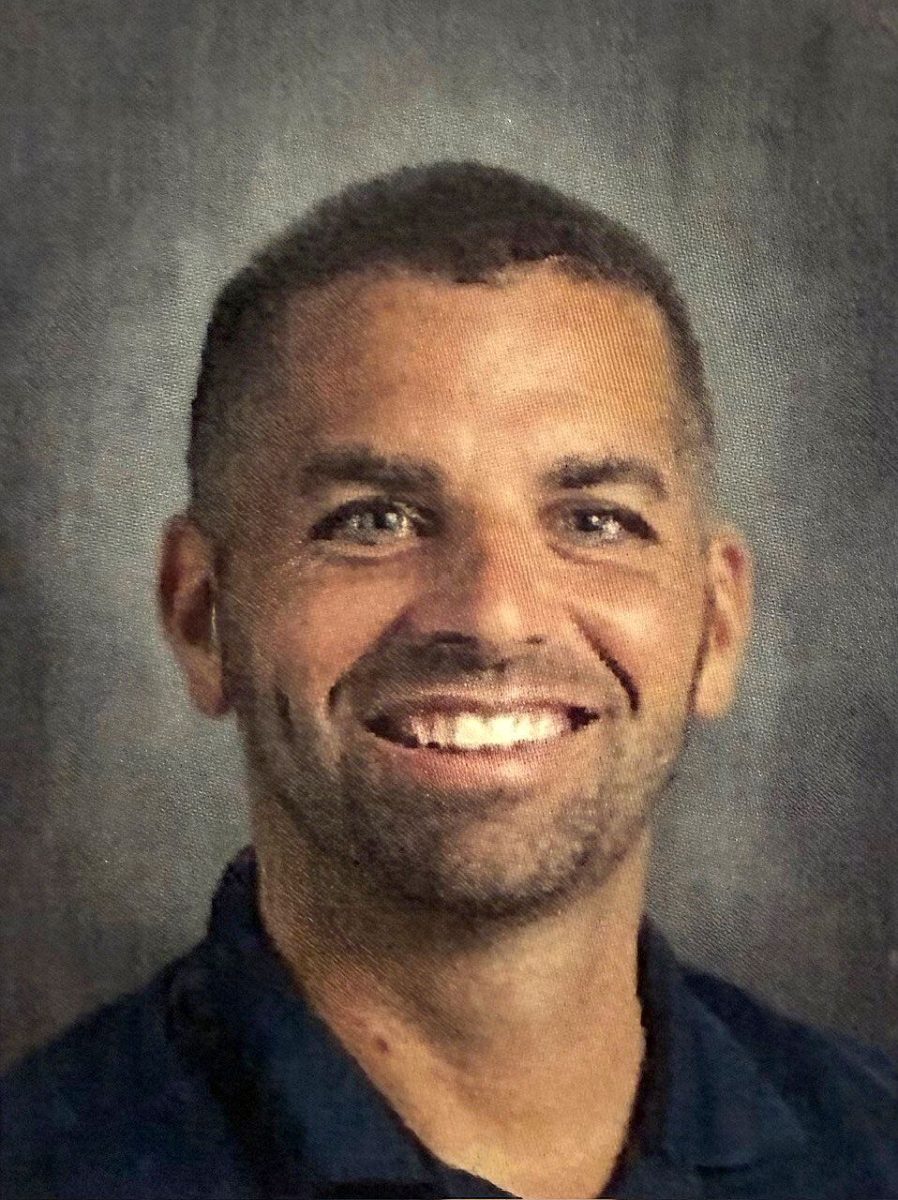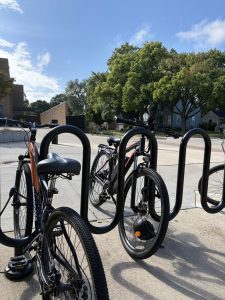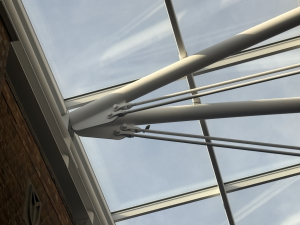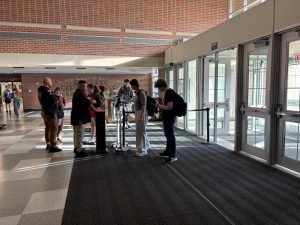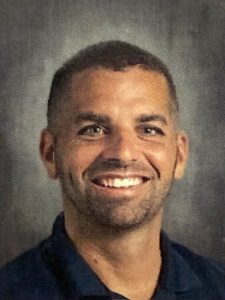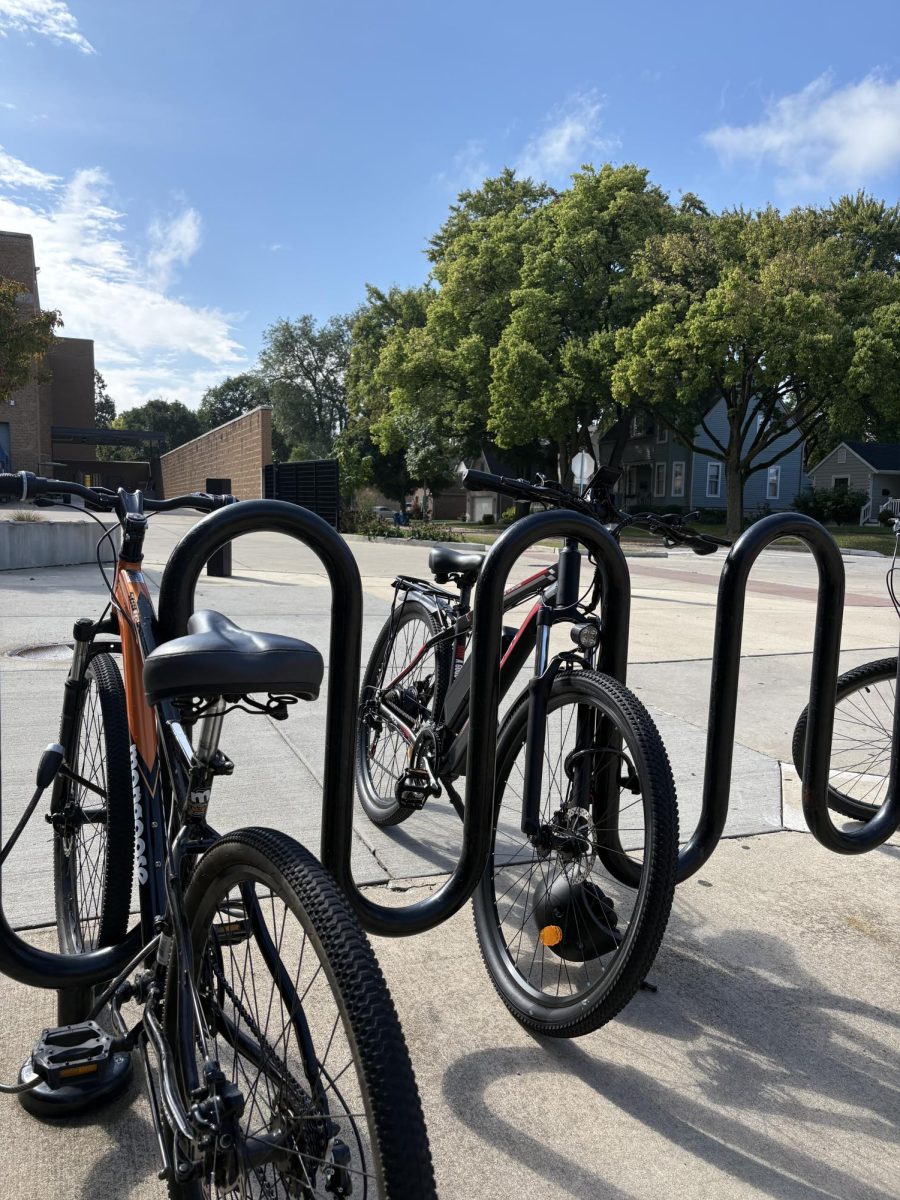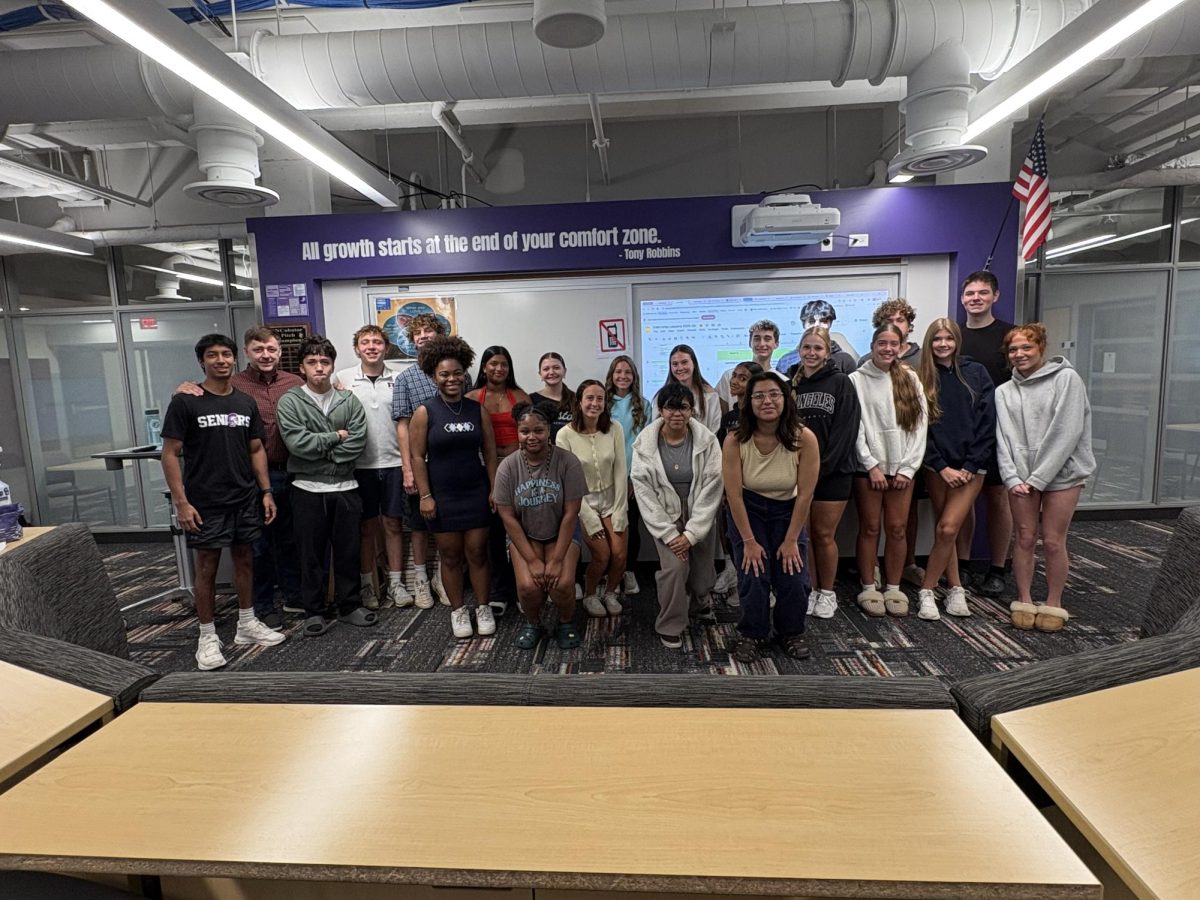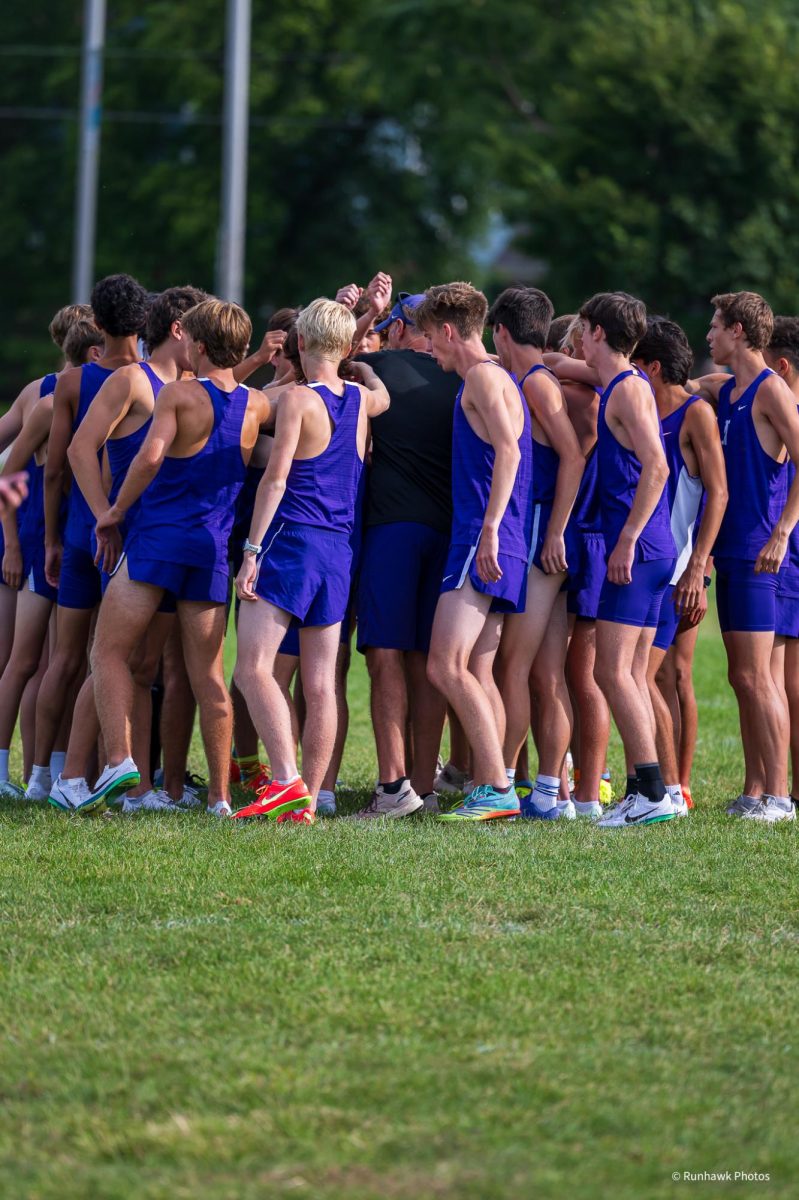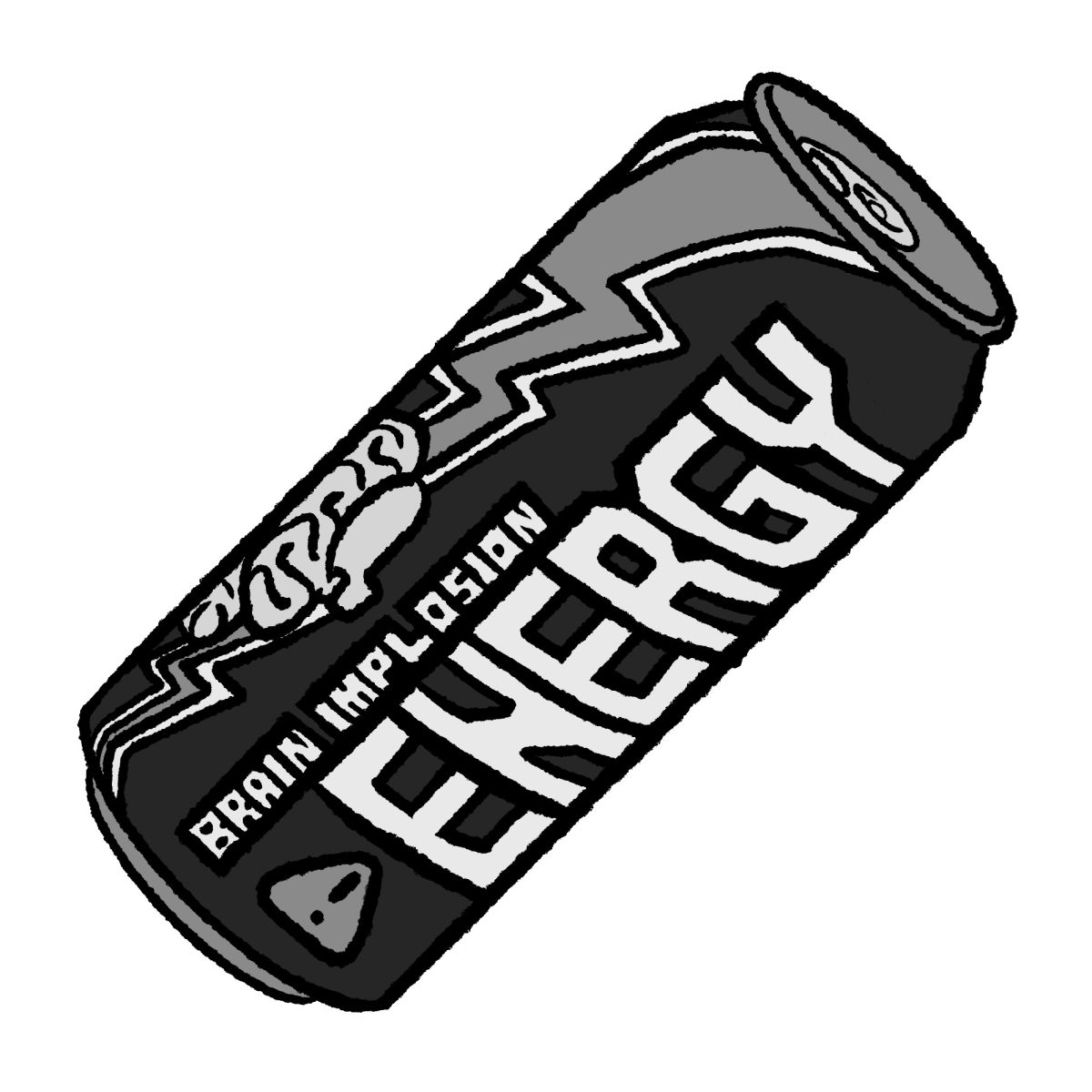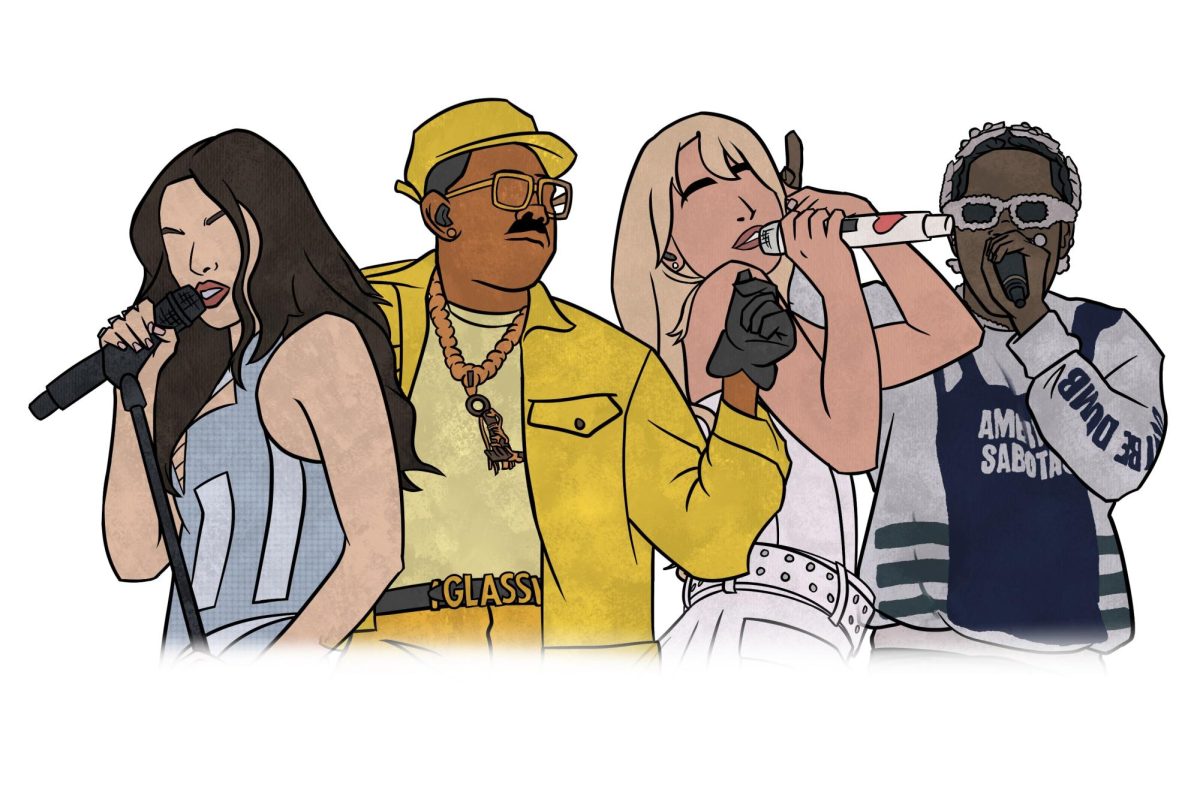Student activism spotlight
January 2, 2021
DGN is made up of countless athletes, actors, musicians, and artists but there are many students who people consider as activists. Activist: a person who campaigns to bring about political or social change. Here are just a few students who continue to fight for change within and around the DGN community.
Izzy Sauer (12)
She/Her/
Q: How did you first get involved with activism?
A: I think I really started to get into activism with LGBTQ+ rights because something that’s very personal to me as a member of the community and also with family members and friends, so that’s always something that really kickstarted everything.
Q: What are some of the ideas that you fight for?
A: I think when you’re talking about activism, I don’t think it’s right just to be like ‘this one thing is what I do’ because really everything connects and everyone has issues that do connect to each other and there’s different communities that struggle. So even though I personally am mixed race and an LGBT woman so those are the big things I really wanted to start with but I also think promoting other communities and their issues is really important but at the same time I don’t want to step on anyone’s toes by overspeaking for them, I want to amplify their voices especially with something like Black Lives Matter (BLM), I wouldn’t ever want to speak for them, I’d rather just be like ‘look at these people and what they’re doing’ and support them more. So those are probably my biggest things.
Q: How does social media impact your activism?
A: I think the criticism of activism now is social media and how people post a lot on their stories, which is something that I do, but i think that it’s really important to share resources with people and also educate yourself because I see a lot of people that will share something on their instagram but then when you ask them about it they’re just like ‘oh I don’t know’ so it’s a good start. I like to share resources on social media because that also furthers research opportunities because when I see something, a good example is what’s happening in the Philippines right now with their natural disasters, so I saw that on instagram and I was like ‘oh my god I need to research this and then go on and then promote it’. I have a few things that are very personal to me but I do like to talk about everything and I know that sounds like a little bit like ‘okay you talk about everything, go you’ but I never want to exclude anyone because I think that if you just talk about your things and completely ignore other things, it’s very hypocritical I don’t want to say people who do their activism in that way is wrong because if it’s personal to you, you should speak out about it but I do think that being inclusive of everything is very important to my activism and that’s why I always try to be educated on as many things as I can.
Q: What are some activities or groups you’re involved in and out of school?
A: Within school I’m in Prism when I am able to go but I also lead the Equality Committee for Empowerment Club and that attracted me because it’s everything and I love about being in Prism but I wanted to reach every single issue and also talk to people who are struggling in different communities and also bring in my perspective, that’s why I really love leading that and also getting to work with different people of different committees. Right now we’re doing something with sustainability with environmental justice and climate racism which is really interesting to hear from the perspectives of people in the group or just reading about people with their experiences with it. I am also in Erika’s Lighthouse which is also something that I talk about because as someone who struggles with mental health, which could be considered as activism because you’re talking about awareness. So I really love doing that and outside of school, I am a part of March For Our Lives, I am also a member of HRC and GLSEN which are both for LGBT students.
Q: How are some ways people could get involved with things that they are passionate about?
A: Whenever I see marches or rallies that are local, I try to get involved. I went to the BLM protest in June in Downers Grove and I’ve also been to Pride.
Instagram accounts to follow that Izzy likes to follow for more information about some of the issues mentioned above
@soyouwanttotalkabout
@dgnempowermentclub
@glsen
@dgn_erikaslighthouse
@blklivesmatter
@humanrightscampaign
Melena Harris (12)
She/Her
Melena was diagnosed with Hyper mobile Ehlers Danlos syndrome, it is a collagen defect that causes her muscles and tendons to be stretchy. She is at very high risk of dislocating joints, having aneurysms, issues with healing, weak teeth, digestive problems, fainting, and so many more.
Q: What are some issues that you are passionate about?
A: I’ve gotten really involved with the BLM movement and protests because due to my disability I couldn’t go out and protest myself but I did a lot of work from home of making sure people got home safe, keeping people in contact with each other. I do my best to try and speak out about things that happen in my life because I know people who aren’t aware of my disability, I try to post it. I know I’m not the only person going through it and if I can talk about that, hopefully someone going through the same things, I can help them feel less alone. That’s my goal with talking about it and to raise awareness. I received a lot of awful comments about my disability, I’ve been harassed, I’ve even gotten a couple death threats and even teachers at school making some uncomfortable comments.I’ve found that if I talk about it openly, it lessens the uncomfortable questions.
Q: Can you talk about your journey to getting a diagnosis?
A: I started having symptoms around the age of 10, it started with my knee hurting and I never knew why so my parents took me to the doctor and he said, ‘oh she’s just being over dramatic, every girl’s knees hurt when they’re a kid. Just get over it’ So my parents didn’t take me back to the doctor after that because they thought I was just being over dramatic. Then I was injured on a trampoline and I broke a growth plate in my left shoulder and that was a very obvious injury. So I went to the doctor again, and we did physical therapy, we did all the right stuff and it never quite healed right and the doctors were just like ‘oh that’s how it is, don’t worry about it’. But then in 8th grade I dislocated my knee for the first time and that never healed right. It was a bunch of injuries that never seemed to heal right, It got to the point where I had a huge fight with a doctor of me telling them ‘you need to do something because I am dying’ because I wasn’t able to drink or eat or really move anymore. And that’s what it took. It took me almost dying for me to be taken seriously. Now looking back I realize a lot of it was probably racism and not listening to me because I was a girl. It took four years of constant doctor appointments to get an official diagnosis. There are still doctors who doubt my diagnosis or tell me that I’m being over dramatic about my chronic pain. It’s pretty difficult to deal with, especially at school.
Resources that Melena likes to point people to when they have questions about her disability or about the rights that people have when they have a disability,
ACLU Know your disability rights
Tessa Arenz (12)
She/Her
Q: What are some issues that you are passionate about?
A: I am pro life, I first got introduced to the pro life community through my school because I went to a Catholic grade school and middle school but I didn’t actually start getting involved until high school. I wasn’t super passionate about it until I started doing my own research because I try to separate religion from it a lot because I think I personally think that the pro life message isn’t about religion. I was always raised around religion and pro life beliefs being incorporated together. In high school I started doing my own research and forming my own beliefs about it especially being in a more liberal school. A lot of times people get nervous or worry about what other people think and that’s why people don’t advocate for topics they’re passionate about but I don’t think you need to worry about that as long as you’re standing up for what you think is right.
Q: How do you use social media to advocate for the Pro Life movement?
A: Social media is a great outlet because so many people check it daily and people get information from it. There’s both opinions shared on social media but I think it’s important to get both sides. I see a lot of pro choice things on social media and not as many pro life things and I think it’s important for people to see both sides and also for the other people who are pro life because I think if one person shares their beliefs, it makes other people feel comfortable sharing the same things. I think high schoolers aren’t watching the news or reading the newspaper as much as they want to, but everyone’s on social media so it’s a good way to spread information.
Q: What are some things you’re involved in that help you further your activism?
A: I try to do a lot of leadership things. A lot of my youth group is pro life and groups at my church are pro life. I think by being a leader, in other organizations and activities you can share your beliefs and opinions that way. I think just being involved in as much as you can and then that gives you a good platform for people to come to you for questions. There’s not a main pro life group at North, there is the Young Conservatives of America club and I’ve been to a few meetings but I’ve actually thought about starting one but I’m not sure how the administration would like it.
Resources that Tessa likes to look at to further her education about the Pro Life movement
https://www.studentsforlife.org
Matthew Sirota (9)
He/Him
Q: Why is it important to you that young people get involved in activism?
A: The fact that I am very young, I’m only 14, I can’t vote but I think it’s very important that we know what’s going on in the world and I want people even though they’re young like me to be interested in things like politics. That’s why I’ve tried to be more outgoing and vocal about my beliefs because I just think that it’s very important to know whats going on, even if you can’t vote, even if you don’t have a formal voice, you still can communicate your beliefs to others.
Q: What are some issues that you speak out about?
A: Equality of course and stemming off from that is equality through race, through the LGBTQ+ community and being able to show others that you are noticing them and that you do fight for them.
Q: How do you utilize instagram for activism?
A: I would definitely say that Instagram is a very easy way to just say stuff. You can find a post and just repost it and I think it’s really easy way to spread the word but it can also be pretty scary because there is a lot of misinformation. Some people that follow you might not agree with it. I’ve lost 29 followers this past week. I don’t know the reasoning but maybe people are sick of me posting about politics and they just unfollow me which is fine. I just really want to spread the word and Instagram is a great place to do it.
Q: Why is it important that guys get involved in the conversation about politics?
A: There’s some sort of stigma around guys and politics. I think it’s really important. There’s a lot of certain topics that guys don’t want to be involved in. They think it doesn’t affect them and they just want to stay out of it but I think that even if it doesn’t directly affect you, I think it’s still really important to speak up for others and be able to help the conversation. I want guys to start being more active and I think that plays a role in stuff like social media.
Instagram accounts that Matthew likes to follow to expand his knowledge about activism
@impact
@nowsimplified
@innocenceproject
Emma Udovich (11)
She/Her
Q: Why are you passionate about sustainability and climate change?
A: It’s one of the biggest problems that we face today, not just in the United States but in the whole world in general and it’s something that I’m very passionate about. My family has raised me to believe that climate change is real and that has a big impact on our future generation as well.
Q: What are you involved in that helps you further your climate change activism?
A: I have a family connection, she lives in Colorado and used to work with the government about climate change so I’ve been going back and forth with her and trying to find easy to help out and it’s been a really cool experience. I try to pick up as much trash as I can and I drive a Prius as well which is a sustainable car. I try and do as many little things as possible because everything helps.
Q: Why is it important to get involved with activism?
A: I think it’s very important for our generation specifically because we are the future. The clock in Times Square said that we only have seven years left in order to get climate change under control before it becomes irreversible and I think it’s important that we fight for ourselves because we don’t know what’s going to happen.
Emma likes to follow these Instagram accounts to stay updated about what’s happening in the world.
@chnge
@gretathunberg


